FREELANCE
CHANGING ROOMS
The places and spaces that freelancers are working in is fast-changing to offer more flex, more community and more creative opportunities
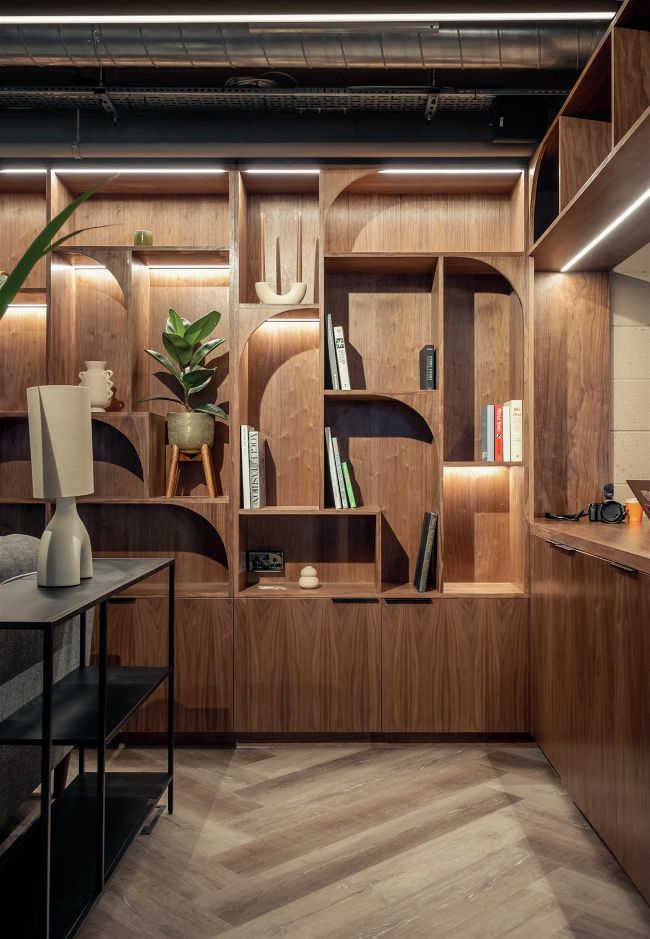
STĀSTUDIOS
The phrase on everyone’s lips right now is ‘co-working salons’, or at least it appears to be. Press releases about the latest co-working salon opening seems to dominate our inbox at HJ HQ. However, results from a survey conducted on HJ's Instagram showed that 54% of our audience don’t have a co-working space near them. Does that tally with your experience?
Nevertheless, we wanted to explore how these spaces are changing the landscape of freelance hairdressing. What does the switch from rent-a-chair models to more multi-functional studio spaces mean? Yes, the coffee shops, event spaces and podcast studios are exciting, but what about the drive to offer freelance hairdressers more education, creative communities and busines support? Can the co-working salon really deliver it all? And what does it mean for the more traditional salon model? Can the two co-exist in per fect harmony as suggested in our Voicenotes this month?
The Changing Landscape
“When we opened Hunter Collective seven years ago, we wanted to unite a group of people that we felt didn’t have a big enough voice in the industry. At first, no one could figure out what we were doing,” admits Lacey Hunter-Felton, CEO and Co-Founder Hunter Collective, one of the early pioneers of the co-working salon. “But the importance of having a flexible space for multi-location freelancers to work the hours they wanted, was much-needed.” But in 2017, the year that Hunter Collective was born, it was a different landscape to now. One where a global pandemic was merely the plot of a dystopian film, and the traditional salon structure reigned supreme. But there were signs of a changing tide…
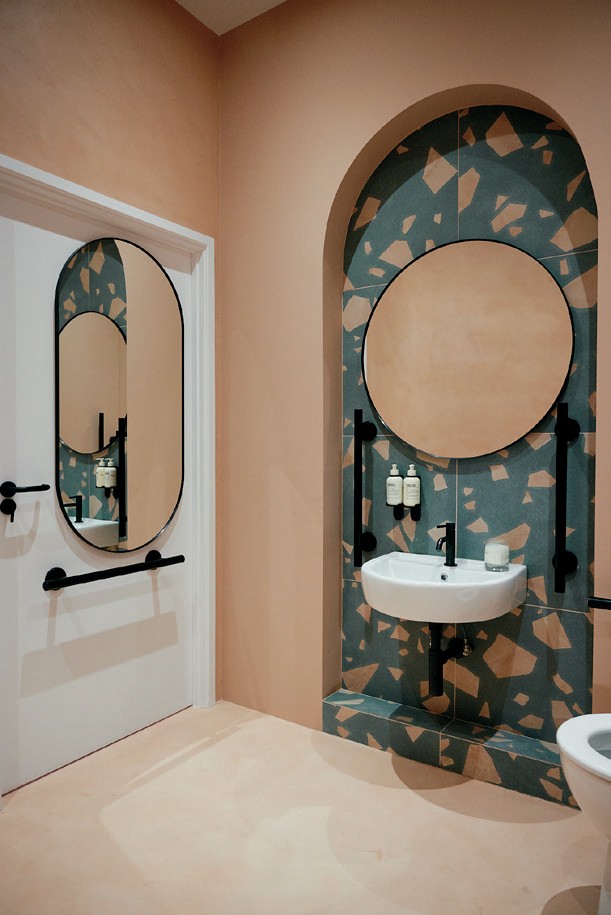
GRID STUDIOS
Ky Wilson went freelance 12 years ago and cited freedom as his main reason. “For me, the whole point of freelancing is to have no rules!” he adds. Gone are the days of working every Saturday and doing late nights. Hairdressers want more balance and freelancing is often touted as the solution.
“I went fully freelance in 2018 and during that time it was not a well-accepted choice,” shares Ashleigh Hodges, who has just opened MASH Creative Studio earlier this year. But it's a strong social media presence that is playing a role in this changing perception. “Social has allowed hairdressers to platform their work as well as connecting directly with clients,” explains Nick Fletcher-Holmes, Goldwell UK Creative Ambassador. Jack and Ross Williams-Hirst saw this gradual increase in working independently. Fast forward to 2024 and they've opened one of the latest crop of co-working spaces in London – Williams & Hirst in Soho.
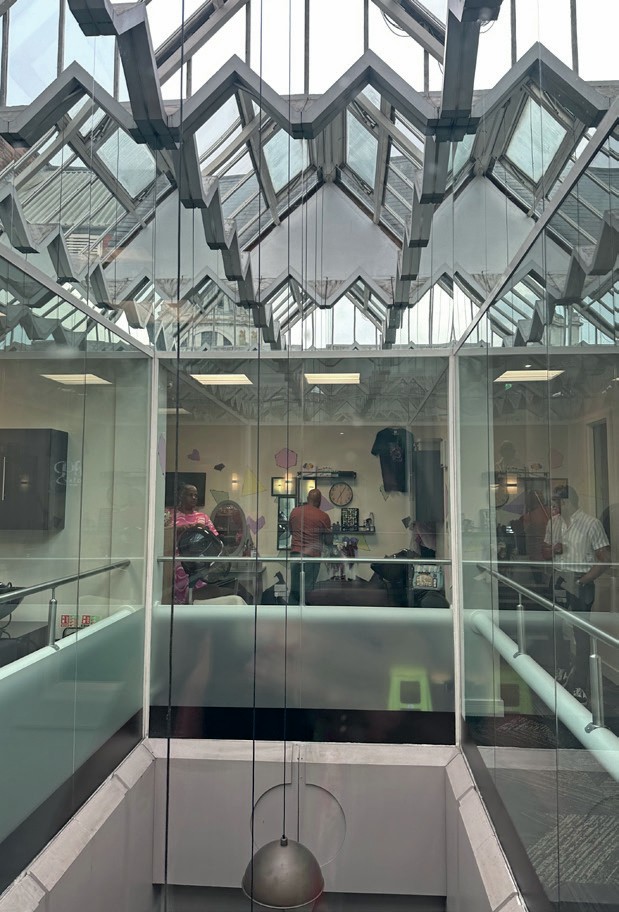
PHENIX SUITES
Post-Covid, the dream of having more balance was a huge draw. “But I believe Covid-19 accelerated a shift that was already happening,” says John Gillespie, UK Managing Director at Phenix Salon Suites, who bucks the trend for London-centric co-working spaces with sites in Birmingham, Manchester, Liverpool and most recently Nottingham. “There was the Be the Boss movement, the success of WeWork spaces and the rise of the multi-hyphenate career.”
“THE WHOLE POINT OF FREELANCING IS TO HAVE NO RULES; IF YOU FIND YOURSELF WITH ANY, THEN GET OUT AND FIND SOMEWHERE ELSE!ˮ
Side Hustles
There’s no doubt that the power of the multi-hyphenate career is an ongoing occupational trend. What might have started as a financial necessity during Covid-19, has now become a way of life. In fact, Paco Latorre shares: “I’ve been freelancing for 10 years, but I'm also Creative Director at Live True London Salons. This balance gives me the freedom to manage my own schedule, collaborate with brands like Directions, and efficiently serve my clients while also taking on external projects like shoots, events, and educational opportunities.” Producer Danny Mendoza-Hall, CEO and founder of GRID Studios, has also witnessed a rise in the side hustle. “Yes, their column is still important, but hairdressers are making more time for lucrative side projects like content creation and brand ambassador roles,” he explains. “We recognise that freelancers are looking for a space for content creation. GRID Studios is set up specifically for shoots and lives.” For Chloe Swift, Maria Nila’s Professional Ambassador, being a multi-hyphenate hairdresser working between education and session styling, is nothing new. “The freelance jobs I do are often last minute, therefore, I found it hard to work for a salon – I need a flexible space,” she explains.
The Rent-A-Chair Journey
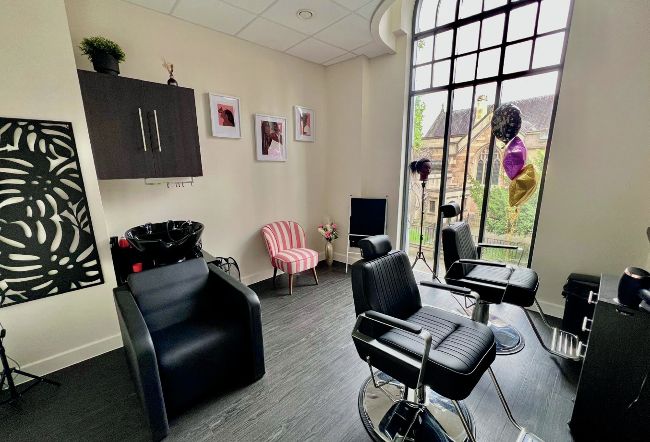
PHENIX SUITES
Speaking of flex, Salon Owner, and UK Distributor of Four Reasons, Craig Hubert admits that it can be difficult to make self-employment and employment work together in a single salon. “The self-employed stylist might be looking to reduce their hours or increase their prices, which they have every right to do as a freelancer, but how do you manage that alongside employed staff?” asks Craig. It can be difficult for the salon owner to keep control if all the staff aren’t singing from the same hymn sheet.
Plus, freelancers often want to leave a traditional salon space as part of their transition to becoming self-employed. Rachel Valentine, who also works as a L’Oréal Professionnel Educator, works from a home salon. “It used to be that mobile, home and freelance hairdressers were not viewed as being as skilled as those in the salon. But people are now less judgemental of freelancing for sure.” Private settings like home salons offer low overheads, which can be attractive to hairdressers who have previously been paying rent. Therefore, could collective spaces bridge the gap between the home salon and the traditional salon?
Brand Watch
Many of those we interviewed said that brands had had to change their strategy post-Covid-19 or risk alienating an ever-increasing market. “What freelancers want is the freedom to work with the brands they love,” says freelance educator and hairdresser Emma Fowler. We have undoubtedly seen product brands respect freelancers more, while software brands offering smart pricing tools to help manage business finances. “Vish Colour Management has changed the way I price so that my costs and time are compensated fairly,” Emma shares.
In fact, Four Reasons also cited support as one of the pillars of its product line. “Freelancers don’t want to 'just' buy a product,” Craig explains. “They want to feel part of something, whether that’s with education or business support. Of course, being able to afford the actual product is key too. Costs have escalated, which means brands have to be more competitive on prices, and offer great margins and commission.”
Community Focus
To Craig’s point about support, freelancers have recognised a need for in-person community. Just like the wider population, it seems that stylists are realising that they need a clear distinction between home and work – plus, working in a group environment can spur on creativity, allowing you to bounce around ideas. “If you only work from home it’s easy to get stuck in your ways,” says Abbey Smith, Indola Ambassador. “I make sure I constantly create on photo shoots, campaigns and shows like Salon International.”
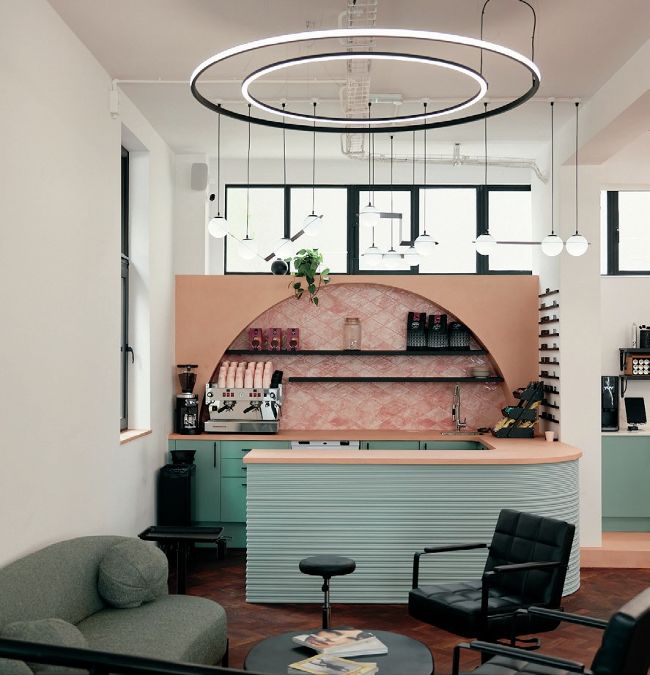
GRID STUDIOS
John spoke to us about Phenix Immersion, which offers support with business, education, pricing for profit and social content days. “At Phenix Suites you can create your own vibe, but equally there is community there if you want it,” he says. Freelancers in 2024 are demanding more. Clarke Elliott, Business Operations at Samantha Cusick and Stā Studios says: “Freelance hairdressers want spaces that give them the freedom to run their own show, but with all the community benefits of a salon.”
“ IT CAN BE DIFFICULT, ALTHOUGH NOT IMPOSSIBLE, FOR THE SALON OWNER TO KEEP CONTROL OF THEIR BUSINESS IF ALL THE STAFF AREN’T SINGING FROM THE SAME HYMN SHEET.ˮ
The Challenges
The business side of hairdressing is something that Williams & Hirst cite as a freelancing challenge. “The complexities of business management, such as handling taxes, budgeting, and fluctuating income streams, can be daunting,” they say. But that’s why co-working spaces feel so supportive, because there’s always someone in the same boat. And it’s not just about business and doing great hair anymore; building a personal brand is a challenge in itself. Victoria Panting, Regional Colour Technician at Salon Success says: “Stylists need to be savvy marketers, business managers, and even social media strategists. Having access to the right resources is crucial, and at Salon Success, our education is available to all”. Heather Robertson, an Educator for Wella Wholesale (the arm of the business that delivers education specifically to freelancers) has some great advice. “Treat yourself like you work for yourself. Put on your employer’s hat. What opportunity did you miss? To jump into a business all by yourself is a leap, and you need to remember all that you’ve learnt in the salon,” she reassures.
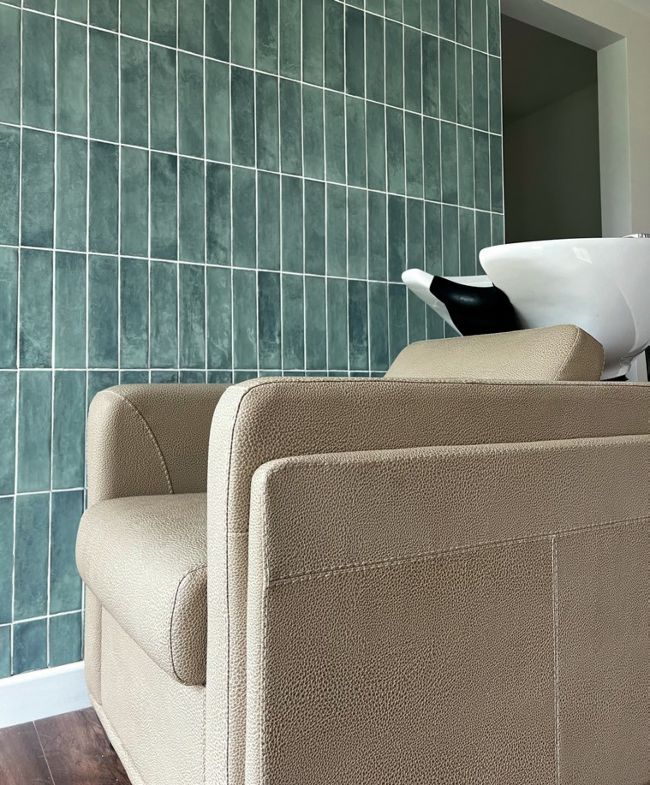
RACHEL VALENTINE
There are undoubtedly areas that we haven’t covered in this freelancing feature, such as how future apprentices are going to be trained, as well as the multiple benefits of salon life, which both deserve their own articles. At the end of the day, it is all down to individual choice and what suits each stylist and their lives. As the saying goes, different folks, different strokes – so why not different faces, different spaces?